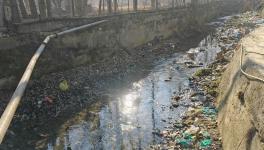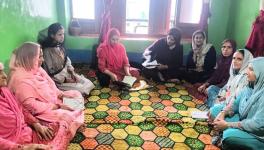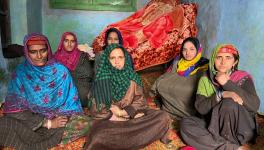J&K: With New Law, Refugees and Marginalised Communities get Domicile Certificates

Representational image. | Image Courtesy: NDTV
Ever since the Jammu and Kashmir (J&K) administration started issuing domicile certificates, there has been a flood of applications from marginalised communities in Jammu. As per officials, an overwhelming number of these applicants are from West Pakistan Refugees (WPR) and members of the Gorkha and Valmiki communities, all of whom have lived in J&K for generations but were never recognised as permanent residents. It resulted in them not having the right to own land and apply for a government job.
Recently, the J&K administration revealed that around 6,600 applicants from the Gorkha community, including retired soldiers and officers, were granted domicile certificates. Members of the community had moved from Nepal during Dogra rule in the 19th century, to fight alongside the Dogra army. While they were allowed to vote in the assembly and local body elections, they were not recognised as permanent residents of the erstwhile state.
Many among the Valmikis and the WPR have also been granted the certificate. As per estimates by their community leaders, around 16,000 West Pakistani Refugees and about 3,000 members of the Valmiki community have been granted the certificate.
“We are really happy as we can now vote, apply for government jobs and can participate in state-level politics,” said Labha Ram Gandhi, President of West Pakistani Refugees’ Action Committee. West Pakistani Refugees, the majority among them Dalits, had migrated to Jammu from Sialkot in 1947 after the partition.
For the members of Valmiki community, these certificates mark an end to years of discrimination. Valmikis were brought in from Punjab to Jammu in 1957 after local safai karamcharis went on an indefinite strike demanding regularisation of their jobs and a hike in wages. The strike continued for six months and the situation was such that the then Prime Minister of J&K, Bakshi Ghulam Mohammad, resorted to bringing in members of the community from Punjab.
“We were brought with the assurance that we will be given permanent residence certificate. However, generation after generation were pushed to work as sweepers,” said Gharu Bhatti, a leader of the Valmiki community.
The need for a domicile law arose after Article 35A, which granted special powers to the state legislature to define the “permanent residents” of J&K, was abrogated. Under the previous law, permanent residents were defined as those who were state subjects on May 14, 1954, and also those who were residents of the state for ten years and had acquired immovable property before 1954.
However, the new domicile law has redefined the eligibility to become a permanent resident. Under the new domicile law, non-locals who have resided in J&K for a period of 15 years, or have studied there for a period of seven years and appeared in Class 10 or Class 12 examinations in an educational institute in J&K, will be regarded as domiciles.
Since the right-wing Bharatiya Janata Party (BJP) came to power, it batted for the abrogation of Article 35A. The party has reasoned that the article made it impossible for members of the Valmiki and WPR community to become domiciles of the erstwhile state.
After the new domicile law was introduced in May this year, the BJP, once again, stressed upon the rights of refugees, reportedly saying: “This will give the long due rights to all refugees incl those from West Pak[istan], SC workers from rest of India settled in J&K for decades, children of KPs living outside J&K to claim domicile now (sic).”
Experts believe that the flawed interpretation that refugees could only become permanent citizens by abrogating Article 35 A, was the result of failures of political parties in the past and of the BJP furthering its own political agenda. Noted political science professor Ellora Puri said: “An amendment could have relaxed PRC rules to absorb the refugees without revoking the Articles. However, the Kashmiri leadership was indifferent to this long-standing issue until the situation was politicised and used by the right-wing party,” she said.
“I would say (it was) the Kashmiri leadership because they were always in majority. There was a lot of sentimental attachment to Article 370 and the Kashmiri leadership felt that they were catering to the demands of the right-wing by doing this. The number of the refugees was too insignificant to affect the demographic composition of the state. It was an ego issue and the short-sightedness of the Kashmiri leadership,” Puri explained.
However, the rules have been relaxed to accommodate members of the Valmiki community, in the past. When Valmikis were brought to Jammu from Punjab in the backdrop of the sanitation crisis in the state, the laws were relaxed to accommodate them to work as sweepers without producing state subject certificates. Jammu and Kashmir Civil Regulations were modified to accommodate members of Valmiki community under Section 35B, meaning the parts of PRC were relaxed to an extent that Valmikis could work as sweepers but not absorbed as permanent residents.
Speaking to NewsClick, a senior political leader said: “This was a humanitarian issue. There should have been discussions and agreements on the ways to settle refugees here. It pending because of certain political interests. There was no discussion in parliament or assembly. NC, PDP who were in power and Congress are equal parties to it. However, the BJP has always used it for propaganda and electoral gains for them. They never intended to solve it. They could have brought in a legislation and solved it but they linked it to revoke Article 370 because that was their primary motto.”
Get the latest reports & analysis with people's perspective on Protests, movements & deep analytical videos, discussions of the current affairs in your Telegram app. Subscribe to NewsClick's Telegram channel & get Real-Time updates on stories, as they get published on our website.
























